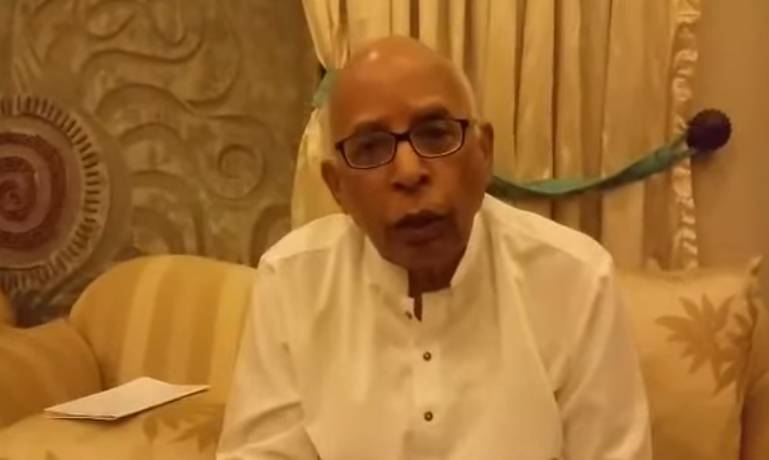The legal community in Pakistan is mourning the passing of Justice (Retired) Mian Allah Nawaz, a highly respected jurist and former Chief Justice of the Lahore High Court, who passed away at the age of 87. His death marks the end of a significant chapter in the history of Pakistan’s judiciary, leaving behind a legacy defined by integrity, dedication, and judicial wisdom.
Born in 1938 in Bahawalpur, Mian Allah Nawaz pursued his early education with a strong academic record, eventually choosing to enter the field of law. After completing his legal education in Lahore, he began practicing law with passion and soon made a name for himself as a diligent and principled lawyer. His reputation for fairness and legal competence earned him the trust of both clients and colleagues, paving the way for his rise within the legal profession.
In 1988, Mian Allah Nawaz was appointed as a judge of the Lahore High Court. His appointment marked the beginning of a distinguished judicial career that spanned over a decade. As a High Court judge, he became known for his well-reasoned verdicts and his ability to interpret complex legal issues with clarity and impartiality. His court proceedings were characterized by decorum, respect for counsel on both sides, and an unwavering commitment to justice.
On February 7, 2000, he was elevated to the position of Chief Justice of the Lahore High Court. Though his tenure was brief serving until July 13, 2000 it was marked by important decisions and an emphasis on judicial discipline. During a time when the judiciary was under immense pressure due to political and institutional changes in the country, Justice Allah Nawaz stood firm in upholding the rule of law. He was widely acknowledged for leading the High Court with a calm and steady hand during a period of transition.
After retiring from the bench, he remained a respected figure in legal circles. He frequently participated in legal forums, contributed to discussions on constitutional matters, and was regarded as a source of mentorship for younger lawyers and judges. His insights were often sought on matters of judicial conduct and constitutional interpretation, and his presence in legal gatherings always commanded respect.
His judicial philosophy was rooted in balance, reason, and a deep sense of justice. He believed that the judiciary must remain independent of political influence and always prioritize the interests of the people. Those who appeared before him remembered him as a judge who listened attentively, ruled fairly, and treated every case with the seriousness it deserved. Even in complex and high-profile matters, his approach was thoughtful and composed.
The announcement of his passing has prompted an outpouring of condolences from legal professionals, bar associations, and members of the judiciary. Many have expressed sorrow at the loss of a man whose career helped shape the moral compass of the courts during challenging times. His life is being remembered not only for the titles he held, but for the values he stood for honesty, humility, and commitment to justice.
As the country reflects on his contributions, it becomes clear that Justice Mian Allah Nawaz was more than just a jurist he was a symbol of integrity in public service. His passing serves as a solemn reminder of the kind of leadership that once defined Pakistan’s legal institutions and the standards that continue to inspire future generations.
Survived by his family, colleagues, and countless admirers in the legal fraternity, Justice Allah Nawaz leaves behind a legacy that will be remembered in law books, in courtrooms, and in the hearts of those who value justice and integrity



Comments (0)
No comments yet. Be the first to comment!
Leave a Comment